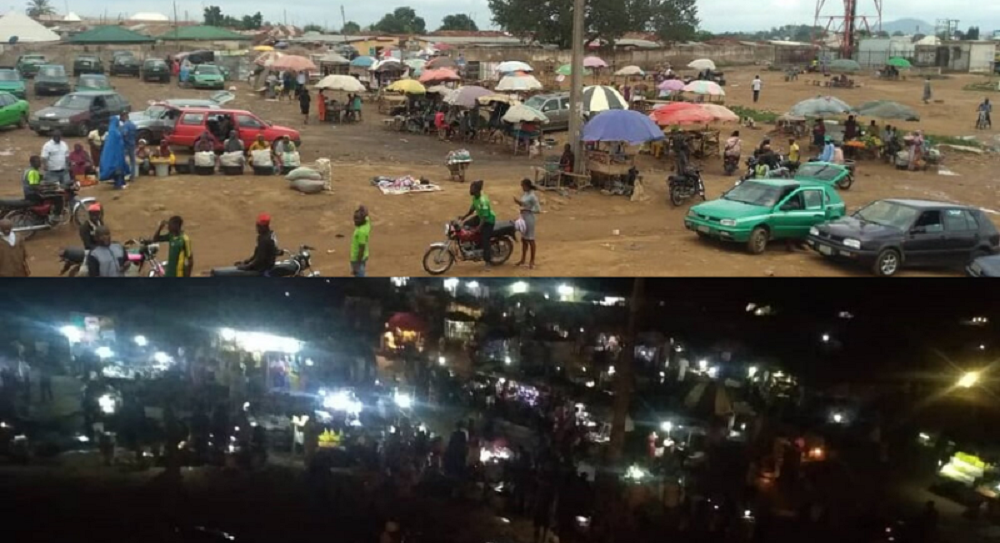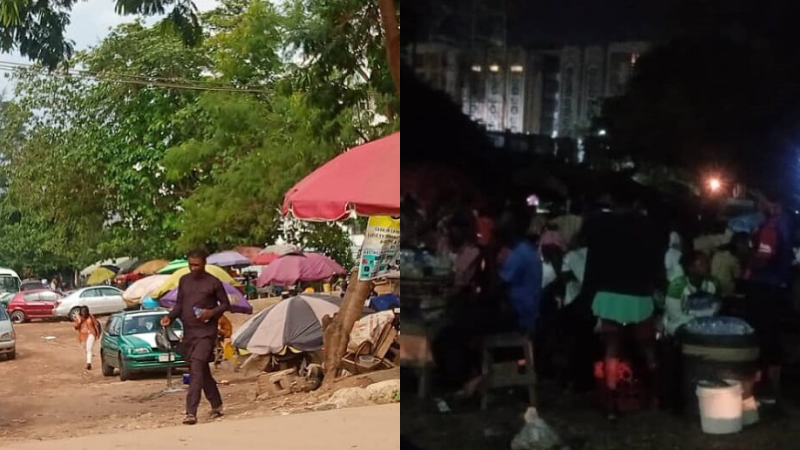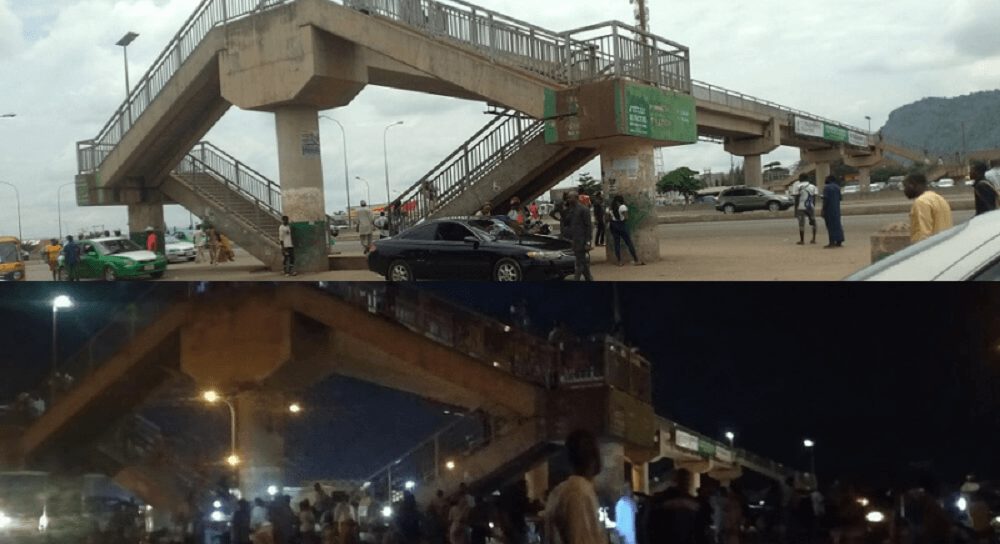Lonely In Daytime, Busy At Night: How Abuja Traders Turn Bridges And Roads Into Markets
Herbert Macaulay Way is one of the highbrow roads in the Central Business District of Abuja where vehicular traffic is always high during the day. It is the road leading to the NNPC Towers, the National War College and the International Conference Centre, among others.
But opposite the NNPC Towers, after the Total Filling Station is a patch of untarred piece of land that serves as car park during the day. But at night, it transforms into a bustling food market where edible fries are sold to night crawlers, security men and workers doing night shift.
Advertisement
Food types on sale include rice, beans, fried potatoes, bean cake, moi-moi and cooked noodle, amongst others.
The traders wait until when official work hours are passed before dropping their small tables and large coolers for food and drinks.
Virtually all the pedestrian bridges along Kubwa and Nnamdi Azikiwe International Airport roads have been turned to night markets similar to what obtains in the city centre.
This is against regulations by the Federal Capital Territory Administration (FCTA) that residents must not trade on road shoulders and corridors to ease traffic flow for vehicles and pedestrians.
Advertisement
Chairman of the FCTA Ministerial Task force on Traffic Management, Mr Ihkaro Attah, had warned that anyone caught violating the regulation would be appropriately sanctioned and their goods confiscated.
But residents, desperate to make a living and unable to afford rent at government markets, have turned pedestrian bridges and roadsides to night markets.
According to some of the traders who spoke to THE WHISTLER, selling at unauthorized markets in the night is a survival strategy to beat FCDA task forces who normally operate during the day.
Findings by THE WHISTLER revealed that rather than coming out to sell their products during the day time, they now flood the roads and pedestrian bridges at night when the task force officials would have closed for the day.
Also, the traders claim to make more sales in the night than during day time, with the advantage that officials of the Abuja Environmental Protection Board would not disturb them.
Advertisement
For instance, the Abuja model city gate, Galadima, and Gwarimpa pedestrian bridges have been converted to night markets by these traders.
Items such as phone accessories, jewelries, shoes, clothes, TV remote control, multimedia player speakers, rechargeable lamps, fruits, cosmetics, snacks and drinks, among others, are on display every night.

At the Lugbe bus-stop, just at the Federal Housing car wash, there is usually traffic caused by people who go there at night to buy various items ranging from thrift wears, food stuff, fruits, shoes, and hand bags among others.
In Kubwa, the NNPC junction opposite Eterna fuel station is a thriving night market that extends to the edge of the Expressway.
Most of those that patronize these traders are usually low income earners who cannot afford to patronize the more organized food restaurant like Jevnick, Chicken Republic, Kilimanjaro, and Mr Biggs among others.

Advertisement
One of the traders on Herbert Macaulay Way who gave her name as Mrs Adamu said, “I usually come out in the evening around 6pm and close at night around 11 pm. I make more sales at night because of the kind of things I sell. If you sell things like fries, fried fish and food around that area, you will make more sales at night.”
On whether they make any form of registration before they are allowed to sell their wares, she said, “Yes, but it depends. When I started selling here 13 years ago, I did not pay any money because we were just six of us at that time. This place was just bush at the time. But now, things have changed. We now have a chairman who is in charge of registration.”
Another trader who sells roasted fish said, “I don’t come out weekends for sales because the area is a working environment. I usually come here between 4pm and 5pm and stay till 10pm or more, that’s because I make more sells at night.”
On March 11 this year, the FCTA issued a warning to traders in the territory to desist from trading at unauthorized places, and that it would confiscate items and properties of defaulters, adding that any property confiscated would be taken to court for permanent forfeiture.
It listed areas in Nyanya, Karu , Dutse Alhaji and Kubwa among notorious night markets.
But so far, it remains to be seen, whether the FCTA can win this war in view of the economic situation of majority of Nigerians.

Day And Night Pictures Of Abuja Model City Gate, Galadima



